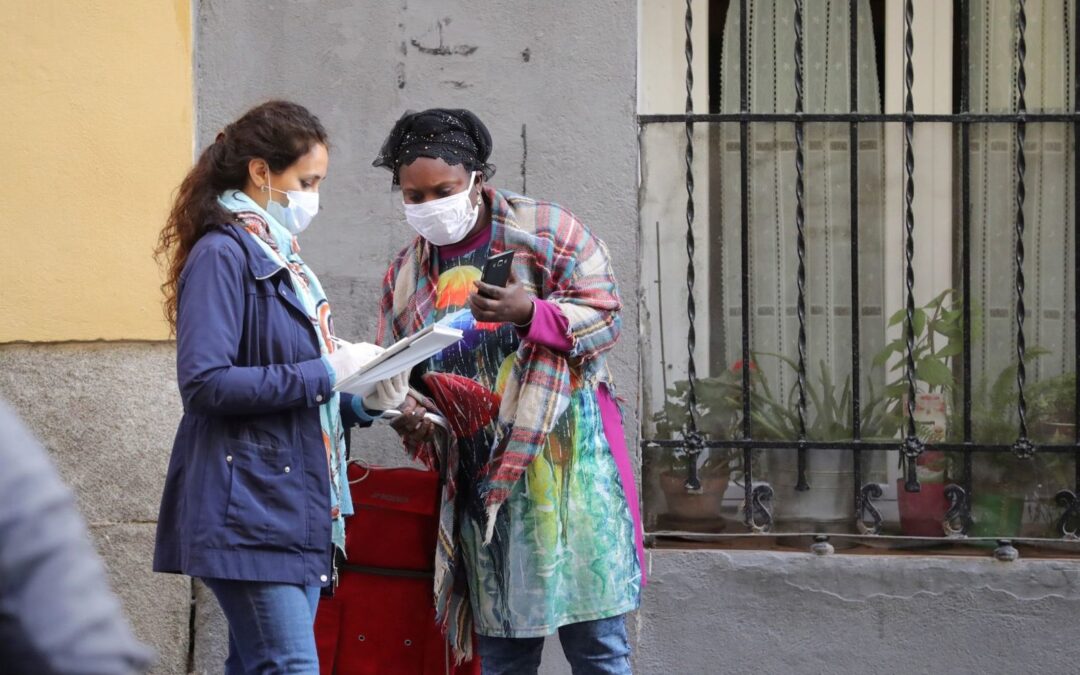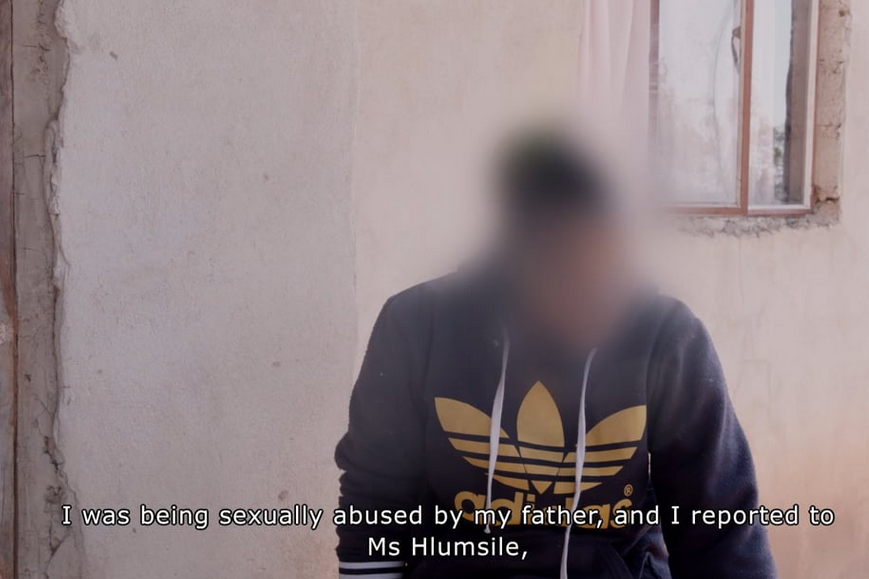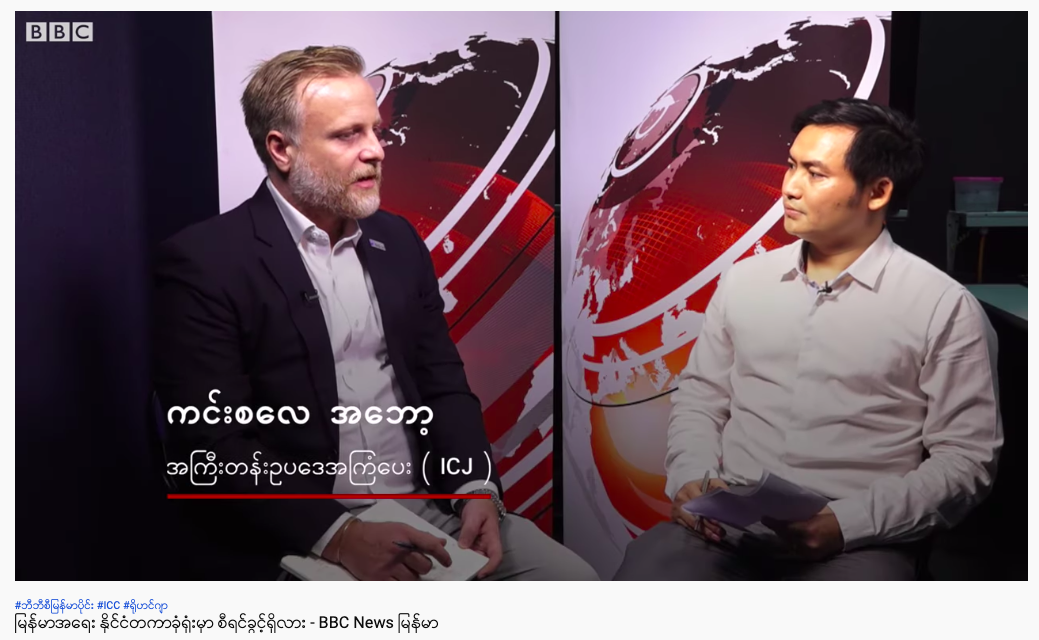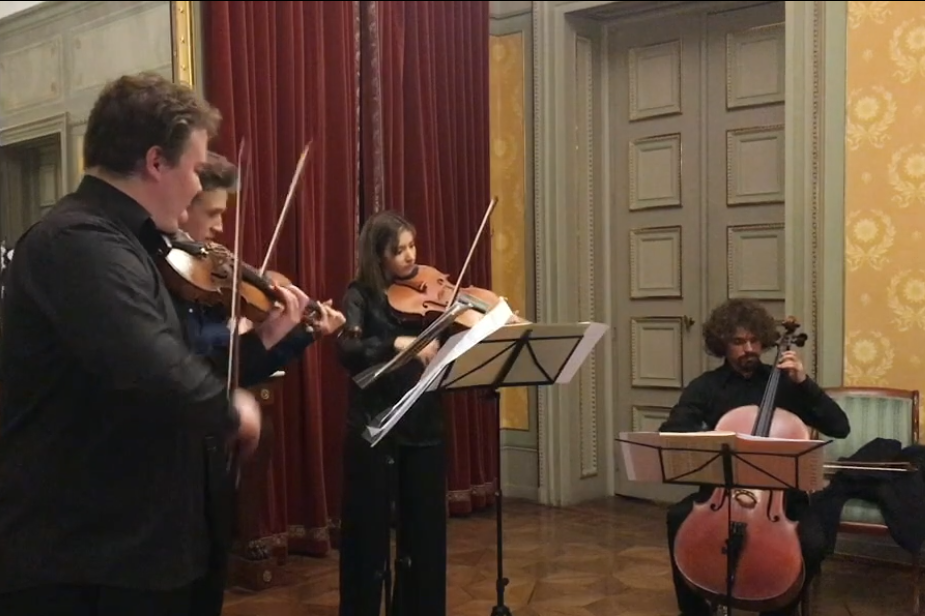
Human Rights in the time of COVID-19: Front and Centre – ICJ news, articles, op-eds, legal blogs, videos
As of 8:00am CET this morning, the Coronavirus COVID-19 Global Cases tracker by the Center for Systems Science and Engineering at Johns Hopkins University in the US recorded 169,049,480 confirmed cases of individuals who had contracted the COVID-19 disease in 192 countries, and 3,513,137 people who had succumbed to the virus. Read all the ICJ articles on the crisis.
Against this background, the aim of this blog is to highlight the necessity of ensuring the consistency of public health policies taken as part of the global responses to the COVID-19 pandemic with human rights law and standards.
As outlined in a prescient 2019 Lancet Commission report – The legal determinants of health: harnessing the power of law for global health and sustainable development – the law, and a firm commitment to the rule of law, play a critical role in the pursuit of global health with justice.
Ultimately, scientifically sound, evidence-based, human rights compliant, transparent and accountable public health policies and practices will also be more effective, as they will, in turn, elicit greater public support, including by prompting greater adherence to public health policy directives imposing restrictive measures on human rights.
As Michelle Bachelet, the UN High Commissioner for Human Rights recently affirmed, ‘COVID-19 is a test for our societies, and we are all learning and adapting as we respond to the virus. Human dignity and rights need to be front and centre in that effort, not an afterthought’.
China, where cases of COVID-19 were first documented, has been questioned from inside and outside for its response to the crisis, at first attempting to shut down information about the virus, leading to arrests and detentions. Outside China, while some COVID-19 health policies have been evidence-based, such as scaled-up, accurate testing for suspected cases, others are ineffective and overly broad, increasing stigmatization and misinformation.
Around the world, people of Asian descent have been subjected to xenophobia, stigmatization and racist attacks. Moreover, many States have now imposed extensive travel restrictions or even blanket travel bans; some have gone as far as using the COVID-19 pandemic as a pretext to promote their xenophobic and anti-asylum agenda and have now shut down their borders to refugee claimants, thereby flouting the right of anyone to seek asylum from persecution in other countries.
In a frontal attack against women’s human rights, in Texas and Ohio, the authorities have moved to ban healthcare providers from performing abortions in most circumstances – purporting to do so to respond to the global COVID-19 crisis. There is also a world of false information on COVID-19. For instance, Indonesia’s health minister suggested that Islamic prayers shielded people from the virus.
To foster scientifically accurate, human rights compliant global health responses – including to events such as the COVID-19 pandemic – it is crucial to enhance dialogue between the public health and human rights sectors. A good place to start framing a productive exchange in this respect is to take a close and simultaneous look at the International Health Regulations (IHR (2005)) – an agreement among 196 WHO Member States to work together for global health security – and to the Siracusa Principles on the Limitation and Derogation Provisions in the International Covenant on Civil and Political Rights (the Siracusa Principles), setting out criteria to determine the lawfulness of measures restricting or otherwise limiting human rights taken by States to respond to – among other things – public health emergencies.
International Health Regulations & Travel Restrictions
Article 3(1) of the IHR (2005), setting out the principles informing the regulations, recalls that, ‘[t]he implementation of these Regulations shall be with full respect for the dignity, human rights and fundamental freedoms of persons’. And, perhaps tellingly, in Article 32, concerning the treatment of travellers, the IHR proclaim, among other things, that, ‘[i]n implementing health measures under these Regulations, States Parties shall treat travellers with respect for their dignity, human rights and fundamental freedoms’.
Notwithstanding the express human rights obligations enshrined in the IHR, current public policy responses to the ongoing crisis – and even public discourses around those responses – make very few, if any, direct references to human rights and, in fact, seem to be oblivious to the impact that measures taken and/or considered in the response to COVID-19 have on human rights.
But the IHR, as noted in a recent piece by Roojin Habibi et al, restrict ‘the measures countries can implement when addressing public health risks to those measures that are supported by science, commensurate with the risks involved, and anchored in human rights. The intention of the IHR is that countries should not take needless measures that harm people or that disincentivise countries from reporting new risks to international public health authorities’.
Siracusa Principles
The 1985 Siracusa Principles provide a good basis to flesh out what a human rights compliant public health response to the COVID-19 pandemic must entail. They detail criteria – by now firmly enshrined in international human rights law and standards – to determine the lawfulness of State measures restrictive of human rights.
According to the Siracusa Principles, for instance, when a State invokes public health as a ground for limiting certain rights, its actions ‘must be specifically aimed at preventing disease or injury or providing care for the sick or injured’. Even in circumstances when it is undeniable that a public health emergency may threaten the life of a nation, the Siracusa Principles reaffirm the obligation of States to ensure that any public health response to such an emergency be rooted in and compatible with human rights law and standards. Importantly, the Principles provide further interpretive guidance to States, proclaiming that restrictions on human rights may be justifiable only when they are:
- provided for and carried out in accordance with the law;
- based on scientific evidence;
- directed toward a legitimate objective;
- strictly necessary in a democratic society;
- the least intrusive and restrictive means available;
- neither arbitrary nor discriminatory in application;
- of limited duration; and
- subject to review.
The final condition – that State action be subject to review – is critical. Analogous requirements can be seen in other areas of international law. In the asylum and refugee context, for example, detention guidelines promulgated by the United Nations High Commissioner for Refugees emphasize that confinement on health grounds beyond an initial medical check must be subject to judicial oversight. Similarly, the Human Rights Committee’s General Comment no. 35 makes clear that the International Covenant on Civil and Political Rights ‘entitles anyone who is deprived of liberty by arrest or detention’ to take their case before a court to decide on ‘the lawfulness of detention’, enshrining the principle of habeas corpus.
The General Comment adds that this right also applies to house arrest, as a form of deprivation of liberty. Of course, whether involuntary home confinement constitutes deprivation of liberty – entitling those subjected to such a measure to challenge the lawfulness of their detention before a court – is a question of fact, depending, in turn, on the degree of the physical confinement imposed. Voluntarily choosing to stay at home in response to State authorities’ exhortation to do so, on the other hand, does not constitute deprivation of liberty.
Furthermore, any State action must comply with the rule of law and should respect the separation of powers. Neither the executive nor public health authorities should be immune from having their actions legitimately scrutinized by other branches of the State, namely, the legislature and the judiciary. Checks and balances are necessary to ensure respect for human rights and for democratic legitimacy.
In conclusion, both the IHR (2005) and the Siracusa Principles remind us of the fact that State responses to global public health emergencies cannot be unfettered, and must comply with States’ human rights obligations. Public responses to health emergencies and human rights need not be in conflict – indeed, grounding States’ public health measures in the human rights framework provides the most effective way to advance global health with justice.
The Lancet Commission report suggests one way to further identify human rights and rule of law compliant measures in the current and future global public health policy response. The report calls for a partnership between ‘legal and health experts to create an independent standing commission on global health and the law’ that would propose ‘evidence-based legal interventions for addressing major global health challenges, reforms of the global health architecture and international law, and strategies to build and strengthen global and national health law capacities’.
We should heed that call.
(Article written by Sam Zarifi and Kate Powers)
Read also
Indonesia: trans women face discrimination in access to Covid-19 vaccines
Nepal: seeking a rights-based approach to healthcare
The unvaccinated: equality not charity in Southern Africa – new ICJ report
Indian government fails to protect right to life and health in second wave of COVID-19 Pandemic
Venezuela: lack of access to safe water aggravates the COVID-19 pandemic
Vaccine patents: healthy or harmful?
ICJ calls on States to ensure human rights compliant access to COVID-19 vaccines (UN Statement)
Peru: the COVID-19 vaccine demands international and national solidarity
The ICJ recommends that the African Union acknowledge COVID-19 vaccines are a “public good”
ICJ Covid-19 end of year compassion appeal
Women facing health risks and gender-based violence in Venezuela
COVID-19: ICJ publishes global guidance on the use of videoconferencing in judicial proceedings
Sri Lanka: vulnerable groups pay the price for militarization of COVID-19 response
At UN, ICJ highlights human rights approach to COVID-19
New ICJ global report shows that the right to health must be central to State responses to COVID-19
Tajikistan: online workshop on access to justice in the times of COVID-19
EU: the impact of COVID-19 on human rights of migrants and refugees
Facebook, Twitter and social media in times of COVID 19 and #BlackLivesMatter
ICJ Covid-19 Emergency Appeal: donate now!
ICJ webinar highlights difficulties in responding to gender based violence during the Covid-19 pandemic (watch below)
The right to water in India and the COVID-19 crisis – ICJ Briefing Paper
In solidarity with the stateless
Kazakhstan: online conference on law and human rights during the COVID-19 pandemic
COVID-19 pandemic exposes India’s housing crisis – ICJ Briefing Paper
COVID-19: NGOs emphasize role of independent UN human rights experts
COVID-19: Myanmar’s ongoing Internet shutdown and hostilities threaten right to health
Judiciaries during COVID-19: South American experience
India on the brink of Hunger Crisis during COVID-19 Pandemic, warns ICJ Briefing Paper
Philippines: upholding human rights during a state of public health emergency
European Union: ICJ joins call for urgent EU response to Hungary’s COVID-19 emergency law
ICJ joins in highlighting COVID-19 human rights issues at Human Rights Council
Cambodia: State of Emergency bill violates the rule of law
ICJ Guidance on the Courts and COVID-19
South Africa: authorities must work urgently to curb gender-based violence under lockdown
State measures to address COVID-19 must be gender responsive
New Zealand: unprecedented lockdown should be carefully monitored
Guatemala: the ICJ urges the Government to protect the rights of indigenous people against COVID-19
You can’t fight the virus when you live in poverty
COVID-19: Use of digital surveillance technologies must be human rights compliant
Turkey : ICJ urges extension of alternatives to detention for prison population amid COVID-19 crisis
COVID-19 pandemic: Zimbabwe must act urgently to protect the right to health of inhabitants
COVID-19: urgent measures must be taken by MENA governments to protect the prison population
Hungary : Parliament should not pass COVID-19 permanent emergency powers Bill
Read ICJ legal blogs on OpinioJuris
The Right to Health in the Occupied Palestinian Territory during the COVID-19 Pandemic
A Radical Shift in Libyan and International Priorities is Necessary to Protect Health and Save Lives in Libya (+ Arabic version)
Gender Based Violence during the COVID-19 Pandemic and economic, social and cultural rights
The Right to Health of Venezuelans in Colombia: From Policy to Practice (Part 2)
The Right to Health of Venezuelans in Colombia: From Principle to Policy (Part 1)
COVID-19 Symposium: The Courts and Coronavirus (Part II)
COVID-19 Symposium: The Courts and Coronavirus (Part I)
COVID-19 Symposium: COVID-19 Responses and State Obligations Concerning the Right to Health (Part 2)
COVID-19 Symposium: COVID-19 Responses and State Obligations Concerning the Right to Health (Part 1)
Watch video interviews
Frederick Rawski, Director of ICJ’s Asia & Pacific Programme talks with ICJ Commissioner and former Chief Justice of the High Court of Delhi, Ajit Prakash Shah about the role of the Indian judiciary as “protector of Indian people” in the context of the Covid-19 epidemic.
ICJ Director of Media & Communications Olivier van Bogaert talks with ICJ President Robert Goldman about the COVID-19 situation in the USA and its impact on human right and the rule of law. They also discuss the killing of George Floyd.
ICJ Senior Legal Adviser Massimo Frigo (Europe Programme) talks with ICJ Vice-President Radmila Dragicevic Dicic about the COVID-19 situation in Serbia:
ICJ Senior Legal Adviser Massimo Frigo (Europe Programme) talks with prominent judge of the Tribunal of Milan, Martina Flamini about Italy, the European country that has been first hit by the COVID-19 pandemic.
ICJ Director of Media & Communications Olivier van Bogaert talks with ICJ Commissioner Belisário dos Santos Júnior about the COVID-19 pandemic in Brazil and the health, political and judicial crisis that it triggered.
ICJ Senior Legal Adviser Massimo Frigo (Europe Programme) talks with prominent human rights lawyer Zia Oloumi about France’s Rule of Law and Human Rights during COVID-19:
ICJ Communications Officer Shaazia Ebrahim talks with ICJ Legal Adviser Khanyo Farisè about the gendered impact of COVID-19 in Southern Africa.
ICJ Senior Legal Adviser Massimo Frigo (Europe Programme) talks about Poland with prominent human rights lawyer, Maria Ejchart-Dubois:
ICJ Senior Legal Adviser Massimo Frigo (Europe Programme) talks about Kazakhstan with ICJ Legal Consultant Dmitriy Nurumov.
ICJ Communications Officer Shaazia Ebrahim talks with ICJ Legal Adviser Tim Fish Hodgson about how COVID-19 has impacted socio-economic rights in South Africa:
ICJ Senior Legal Adviser Massimo Frigo (Europe Programme) talks about Uzbekistan with ICJ Legal Consultant Dilfuza Kurolova.
ICJ Senior Legal Adviser Massimo Frigo (Europe Programme) talks with Turkish lawyer and ICJ Legal Consultant Kerem Altiparmak:
ICJ Communications Officer Shaazia Ebrahim talks to ICJ Legal Adviser Justice Mavedzenge about COVID-19 and human rights issues in Zimbabwe:
ICJ Communications Officer Shaazia Ebrahim talks to Arnold Tsunga, Director of ICJ Africa Programme:
ICJ Senior Legal Adviser Massimo Frigo (Europe Programme) talks with Carolina Villadiego Burbano, ICJ Legal and Policy Adviser for Latin America, about COVID-19 and human rights issues in Colombia:
ICJ Commissioner Justice Kalyan Shreshta talks about the COVID-19 situation in Nepal:
Which answers from economic and social rights to the COVID-19 pandemic? ICJ Senior Legal Adviser Massimo Frigo (Europe Programme) talks with ICJ Legal Adviser Tim Fish Hodgson (Africa Programme)
Follow webinars
The ICJ brought together first responders from Asia and the Pacific, the Middle East and Africa to discuss how they were responding to #GBV during the #COVID19 pandemic.
Additional links








